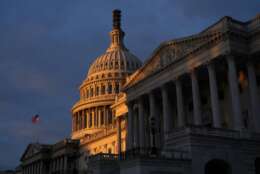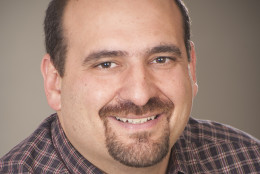Cybersecurity
-
The Defense Department's new rules for contractors to report cyber breaches could end up costing the military a lot more than it thinks.
August 31, 2015 -
The Department of Homeland Security is moving forward with the White House's "kill the password" initiative with an award for cell phone software that authenticates users without the use of passwords and pins.
August 28, 2015 -
Three house lawmakers are asking GAO to evaluate the CEDCaP program after the Census Bureau's last IT Census project ran billions over budget.
August 27, 2015 -
The Office of Personnel Management is all-in for the continuous diagnostics and mitigation program (CDM) to improve cybersecurity. OPM is among the first group of agencies to get new cyber tools and services. But CDM’s rate of implementation in general is causing a problem for the agency. Federal News Radio’s executive editor Jason Miller joined the Federal Drive with Tom Temin to discuss why OPM, and potentially other agencies, are being put in a tough situation.
August 27, 2015 -
Sens. Orrin Hatch (R-Utah) and Ron Wyden (D-Ore.) wrote to the Agriculture Department's National Finance Center, the Pentagon's Defense Finance and Accounting Service, the Interior Department's National Business Center and the General Service Administration's National Payroll Branch asking for details on their reporting of wage and tax statements in an effort to ensure tax refunds are going to the right people.
August 27, 2015 The intelligence community and private industry are pooling their efforts to fight rising threats to national cybersecurity.
August 26, 2015-
Debra Katz, founding law partner at Katz, Marshall, and Banks, shared her view on whistleblowers within the government with Women of Washington hosts Gigi Schumm and Aileen Black.
August 26, 2015 -
As the Office of Personnel Management data breach recedes into the past, the 30-day cyber sprint has left a lasting legacy, says Federal Drive host Tom Temin.
August 26, 2015 -
The Coast Guard is seeing many of its projects growing into programs of record with acquisition plans and contracts that are both on schedule and on budget thanks to a new strategy.
August 25, 2015 -
Agencies had a huge hole to dig out of when the 30-day cyber sprint began in June. That's according to an internal document obtained by Federal News Radio. The state of federal cybersecurity was worse than many might have thought. In this week's edition of "Inside the Reporter’s Notebook," executive editor Jason Miller writes about how far agencies had to come over the summer. He joined the Federal Drive with Tom Temin to share the exclusive details.
August 24, 2015 -
The time to move from contract award to full implementation under the continuous diagnostics and mitigation (CDM) program will force agencies to decide whether to spend money on new tools or wait for those coming from DHS.
August 24, 2015 -
A new document obtained by Federal News Radio shows just how bad in shape agencies were in terms of cybersecurity as of June, and just how far they came over the summer.
August 21, 2015 -
While its known as a marketplace for contraband and subculture activity, network defenders have found that movement in the dark web can help predict potential hacks and breaches.
August 21, 2015 -
Job one for federal agency tech staffs these days can be summed up in one word: Cybersecurity. A big part of ensuring safety of data is making sure networks are protected. Leo Taddeo is the chief security officer at Cryptozone, and former FBI Special Agent in charge of the bureau's Special Operations Cyber Division in New York. He joined the Federal Drive with Tom Temin with some advice on best practices for network monitoring and intrusion prevention.
August 21, 2015 -
The first iteration of the cybersecurity dashboard under the continuous diagnostics and monitoring is supposed to come out later this month. It will soon be one piece of the toolkit agencies can use to step up their cybersecurity game. Molly O'Neill is vice president for state and local government industry at CGI and former chief information officer at the Environmental Protection Agency. She tells In Depth with Francis Rose why the dashboard is the tool agency managers need to understand where they stand on security.
August 20, 2015







